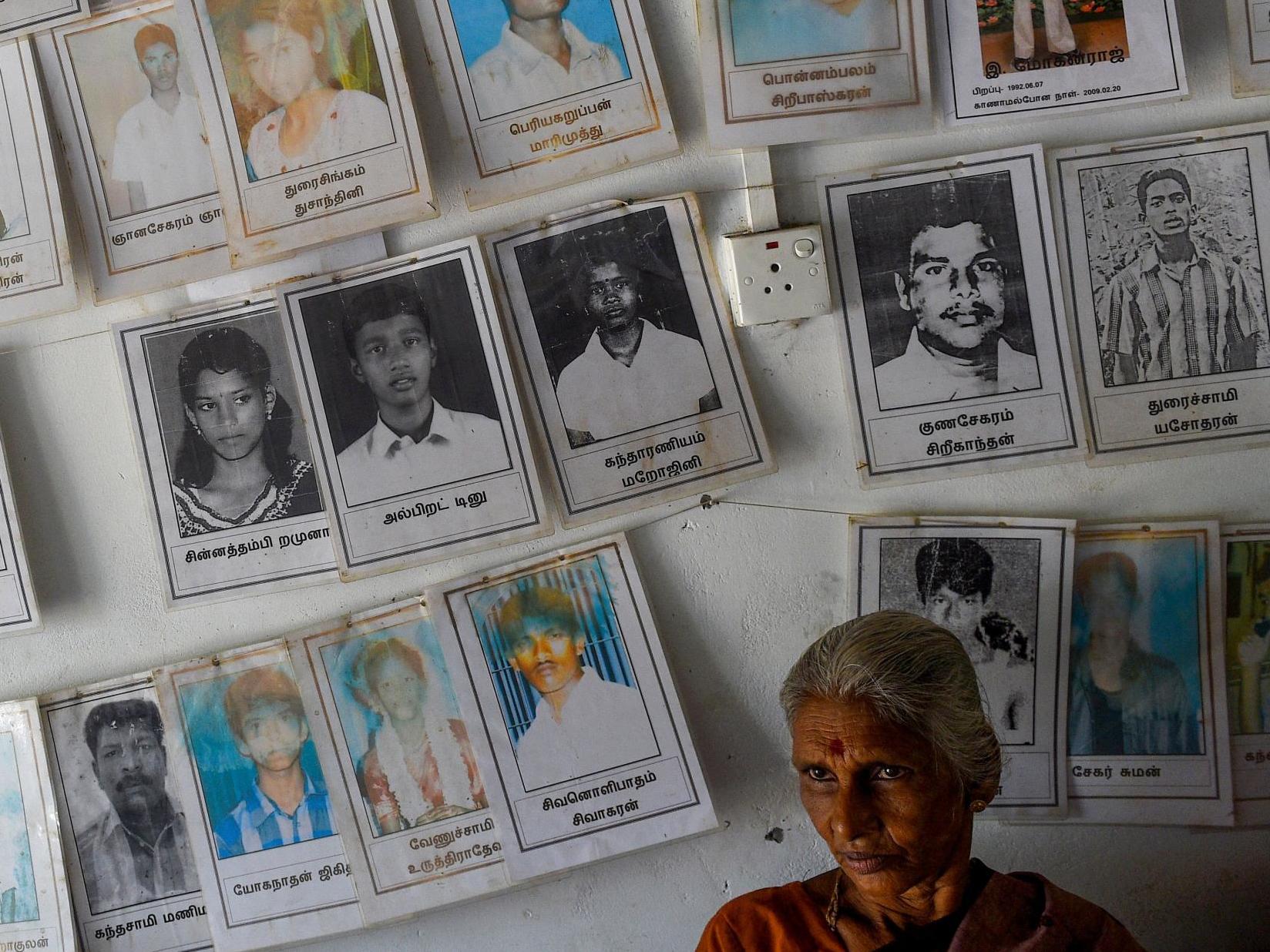Sri Lanka president admits for first time that 20,000 missing from civil war are dead
Relatives say they handed over hundreds of family members to government forces

Your support helps us to tell the story
From reproductive rights to climate change to Big Tech, The Independent is on the ground when the story is developing. Whether it's investigating the financials of Elon Musk's pro-Trump PAC or producing our latest documentary, 'The A Word', which shines a light on the American women fighting for reproductive rights, we know how important it is to parse out the facts from the messaging.
At such a critical moment in US history, we need reporters on the ground. Your donation allows us to keep sending journalists to speak to both sides of the story.
The Independent is trusted by Americans across the entire political spectrum. And unlike many other quality news outlets, we choose not to lock Americans out of our reporting and analysis with paywalls. We believe quality journalism should be available to everyone, paid for by those who can afford it.
Your support makes all the difference.Over 20,000 people who disappeared during Sri Lanka‘s bloody civil war are dead, the country’s president has admitted for the first time.
Gotabaya Rajapaksa said death certificates would soon be issued, according to a statement from his office on Monday.
Sri Lanka's civil war, which lasted for 26 years, killed an estimated 100,000 people and left about 20,000 people, mostly Tamils, missing.
“Most of them had been taken by the LTTE (Tamil Tiger rebels) or forcefully conscripted. The families of the missing attest to it,” the statement said.
“However they do not know what has become of them and so claim them to be missing.”
Mr Rajapaksa made his decision during a meeting with the United Nations’ resident coordinator in Colombo last week, the statement added.
Relatives have been demanding to know for years the whereabouts of the missing, with hundreds attending rallies to pressure the government.
The war, which pitted the majority Buddhist Sinhalese-dominated government against the Tamil Tigers, ended in 2009 with the defeat of the rebels, who had been fighting for an independent state for the country’s ethnic minority.
Scores of fighters went missing in action, while others were abducted by security forces and government paramilitaries, as well as the Tamil Tigers.
Relatives say they handed over hundreds of their family members after government forces asked those with any remote links to the rebels to surrender as they faced defeat in 2009.
They say they are not heard from after being taken away by the military in buses.
An Office on Missing Persons set up in 2015 has been investigating 23,586 cases, including those of 5,000 security forces.
A law enacted in 2016 mandated that an interim report be given to the relatives if there is sufficient evidence the relevant person is missing. At the end of an investigation a final report will be given to enable the relatives to obtain a Certificate of Absence or a Death Certificate as per the outcome.
It was unclear how Mr Rajapaksa’s government came to the conclusion all the missing persons were dead. Mr Rajapaksa served as a top defence official during the war.
Additional reporting by Associated Press
Join our commenting forum
Join thought-provoking conversations, follow other Independent readers and see their replies
Comments